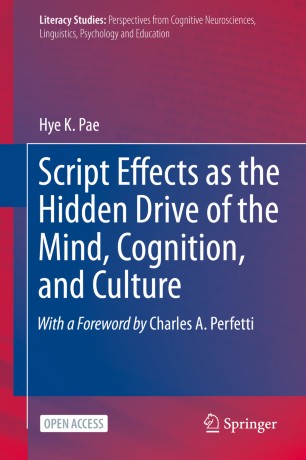

Most ebook files are in PDF format, so you can easily read them using various software such as Foxit Reader or directly on the Google Chrome browser.
Some ebook files are released by publishers in other formats such as .awz, .mobi, .epub, .fb2, etc. You may need to install specific software to read these formats on mobile/PC, such as Calibre.
Please read the tutorial at this link: https://ebookbell.com/faq
We offer FREE conversion to the popular formats you request; however, this may take some time. Therefore, right after payment, please email us, and we will try to provide the service as quickly as possible.
For some exceptional file formats or broken links (if any), please refrain from opening any disputes. Instead, email us first, and we will try to assist within a maximum of 6 hours.
EbookBell Team

4.3
88 reviewsThis open access volume reveals the hidden power of the script we read in and how it shapes and drives our minds, ways of thinking, and cultures. Expanding on the Linguistic Relativity Hypothesis (i.e., the idea that language affects the way we think), this volume proposes the “Script Relativity Hypothesis” (i.e., the idea that the script in which we read affects the way we think) by offering a unique perspective on the effect of script (alphabets, morphosyllabaries, or multi-scripts) on our attention, perception, and problem-solving. Once we become literate, fundamental changes occur in our brain circuitry to accommodate the new demand for resources. The powerful effects of literacy have been demonstrated by research on literate versus illiterate individuals, as well as cross-scriptal transfer, indicating that literate brain networks function differently, depending on the script being read. This book identifies the locus of differences between the Chinese, Japanese, and Koreans, and between the East and the West, as the neural underpinnings of literacy. To support the “Script Relativity Hypothesis”, it reviews a vast corpus of empirical studies, including anthropological accounts of human civilization, social psychology, cognitive psychology, neuropsychology, applied linguistics, second language studies, and cross-cultural communication. It also discusses the impact of reading from screens in the digital age, as well as the impact of bi-script or multi-script use, which is a growing trend around the globe. As a result, our minds, ways of thinking, and cultures are now growing closer together, not farther apart.